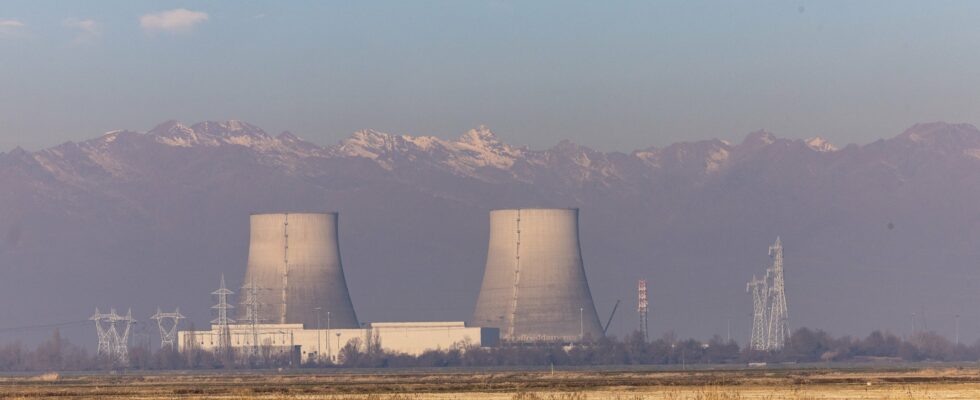Nearly forty years after Italy’s exit from nuclear power, the government of Giorgia Meloni is working hard to facilitate a return to civil atoms, trying to overcome the resistance of a public opinion that still needs to be convinced . Italy intends to establish “a legislative framework by the end of the year” aimed at allowing the future installation on the peninsula of “third and fourth generation” nuclear reactors, announced Monday, October 21, Minister of Business Adolfo Urso .
The announcement of this project for a possible return to nuclear power ignores two referendums which signed the abandonment of nuclear power in Italy. The first, organized in November 1987, in the wake of the Chernobyl nuclear disaster, banned the atom and led to the closure of the last nuclear power plant in 1990. Then, an overwhelming majority of 94% of Italians supported opposed the return to this controversial energy during a second referendum organized by the government of Silvio Berlusconi in June 2011, three months after the Fukushima disaster.
“We do not want to import nuclear reactors from other countries. We want to build them in Italy using Italian technology, Italian science, to export them to other countries,” assured Adolfo Urso. With this in mind, he intends to “present an industrial entity capable of building advanced third generation, then fourth generation, nuclear reactors in our country”.
“Made in Italy”
The right-wing and far-right government led by Giorgia Meloni believes that the use of nuclear energy is essential to achieve the objective of zero CO2 emissions in 2050. Long taboo in Brussels, nuclear power now benefits from more accommodating legislation as a lever for decarbonization alongside renewables. The European Parliament and EU member states agreed in February to include the entire nuclear sector in the list of “strategic technologies”.
According to Adolfo Urso, the use of nuclear power could help lower the cost of energy in Italy, which, according to him, is “too high compared to European competitors”. Supporters of nuclear energy also argue that it would make it possible to free ourselves from Russian gas, after the break with Moscow following the invasion of Ukraine in February 2022. “Nuclear energy, which was invented in Italy, must once again become the pride of “Made in Italy”, underlined Adolfo Urso. He was thus referring to the Italian-American physicist Enrico Fermi, Nobel Prize winner in physics in 1938 and famous for having created the first nuclear reactor.
A new referendum?
For 75% of Italians, however, a return to nuclear energy, considered “too dangerous”, is not possible, and 54% of them advocate increased use of renewable energies, according to an Ipsos poll published in July. “There is a very important lobby in Italy which is pushing the government to restart nuclear power,” assured AFP Stefano Ciafani, president of the environmentalist organization Legambiente, one of the promoters of the two anti-nuclear referendums. “Returning to nuclear power instead of promoting renewable energies which are not dangerous would be a big mistake,” he believes. In addition, “the use of nuclear power will not reduce the energy bill”, especially since “we would have to start from scratch”.
From a legal point of view, will it be necessary to go through a new referendum? “I don’t think a referendum is legally necessary, but politically it is probably inevitable,” Lorenzo Codogno, former chief economist of the Italian Treasury, told an AFP journalist. “There are no more nuclear engineers in the country. Only mini-nuclear reactors could be viable in Italy,” he warned. The Meloni government is in fact considering using third-generation small modular reactors (SMR) or fourth-generation innovative reactors (AMR), still at the research stage. But if a law to this effect were to be adopted, Legambiente says it is already ready to collect the 500,000 signatures necessary to organize a new referendum. Stefano Ciafani is confident: “We have already won twice and we have no doubt of winning a third”.
